

For many individuals planning a visit to the United States on a B1/B2 Visa, presenting a well-crafted invitation letter can significantly strengthen their application. While not mandatory, an invitation letter from a U.S. citizen or Legal Permanent Resident (LPR) can positively impact the visa process, especially when it highlights strong ties to the applicant’s home country. Here, we explain what makes an effective invitation letter for a U.S. visitor visa.
The letter should originate from the host and detail their relationship with the visitor. It should be dated, contain both parties’ full information, and specify the hosting arrangements and travel dates. Crucially, it should emphasize the temporary nature of the stay in the U.S.
Below is a template of how such a letter might be structured:
[Host’s Full Legal Name]
[Host’s Full U.S. Address]
Dear [Visitor’s Full Legal Name],
I, [Host’s Name], am delighted to invite you to the United States to celebrate my 50th wedding anniversary in Buffalo, NY, on February 21, 2050. You will be accommodated at my Buffalo, NY, residence from February 21 to February 28. Our plans include visiting Niagara Falls, Letchworth State Park, and Fort Niagara. I will cover the costs of your round-trip airfare, food, and medical insurance during your stay. Your presence would mean a lot to us.
[Host’s Contact Information]
Accompany this letter with relevant documents such as event invitations, proof of roundtrip airfare, host’s identification or passport, accommodation proof, and a detailed travel itinerary.
For B Visa applicants, remember:
Crafting an invitation letter with these elements can significantly enhance the credibility of your B1/B2 Visa application and facilitate your travel plans to the United States.
You may have questions regarding U.S. immigration laws and visas. We invite you to contact our team at Richards and Jurusik for detailed guidance and assistance. We aim to provide the most accurate and up-to-date information to make your immigration process smoother and less stressful. The immigration lawyers at Richards and Jurusik have decades of experience helping people to work and live in the United States. Read some of our hundreds of 5-star client reviews! Contact us today to assess your legal situation.
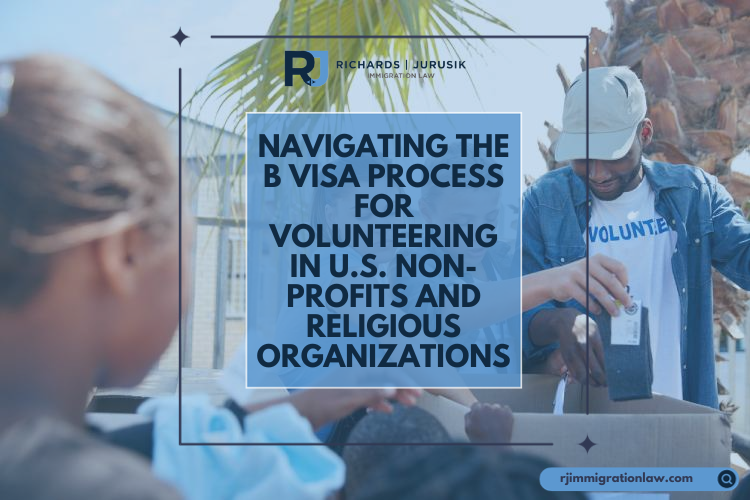
Essential guide on how to apply for a U.S. B visa for volunteering activities in non-profit or religious organizations, with insights into eligibility, documentation, and visa conditions.
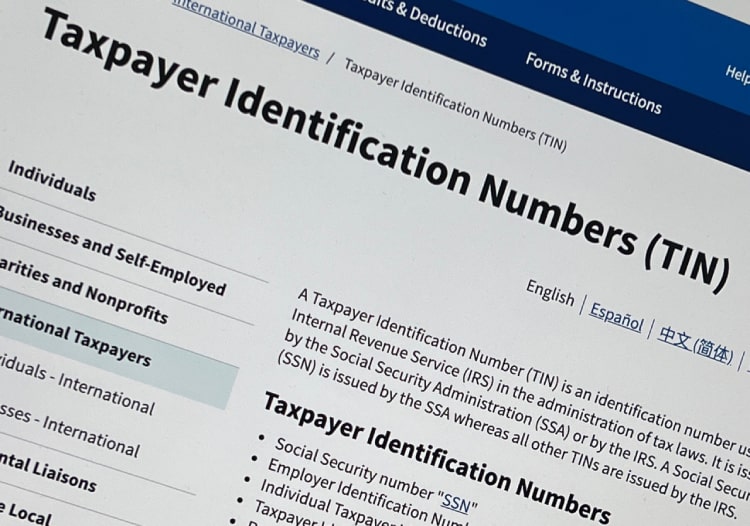
Nonimmigrant visa holders in the United States may need to file taxes. Without eligibility for a Social Security Number (SSN), an Individual Taxpayer Identification Number (ITIN) becomes necessary. This guide outlines the basic steps to obtain an ITIN, ensuring compliance with U.S. tax obligations.
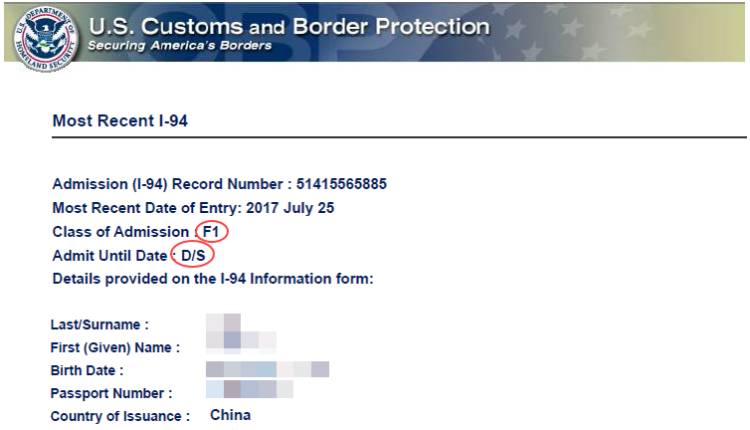
The I-94 Arrival/Departure Record is a vital document for foreign nationals in the U.S. It indicates their legal admission and details about their authorized stay. Nonimmigrants must understand the entries on this form, including the “D/S” notation. We explain what D/S stands for on your I-94 here.
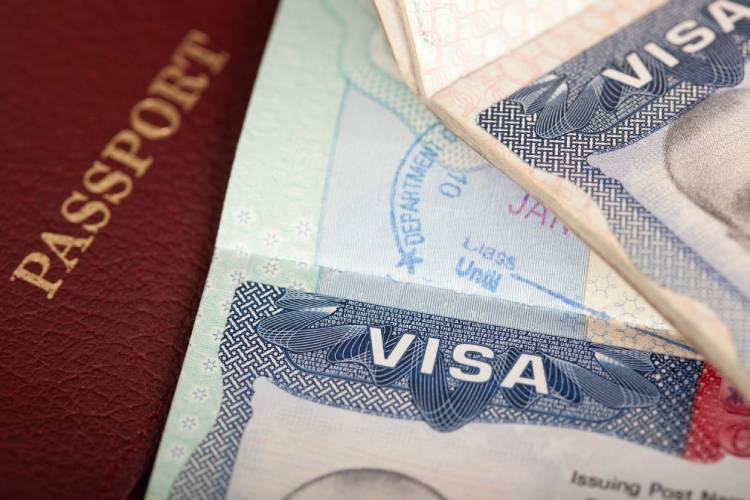
Visa and status are two fundamental concepts in immigration law that are often confused. While a visa allows you to seek entry into a foreign country, your status defines your legal standing in that country during your stay. Mastering these concepts can greatly assist your immigration journey.
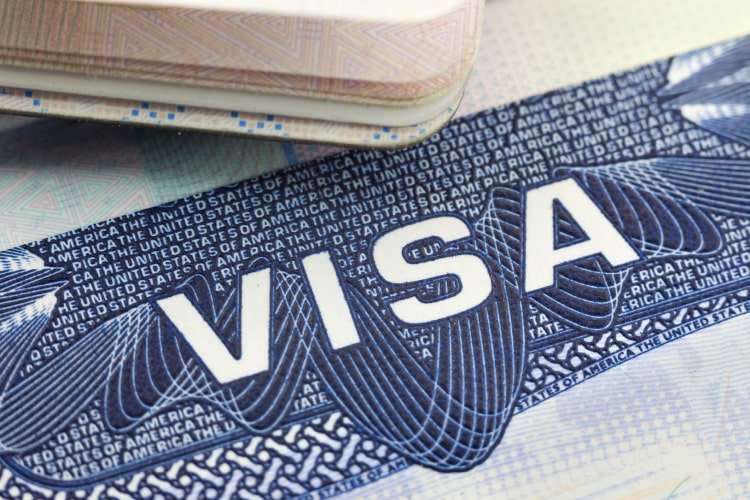
U.S. immigration becomes more complex, especially when juggling multiple visas. To avoid legal pitfalls, it’s essential to grasp the regulations around concurrent visa validity and the conditions for entry. Here’s what you need to know if you’re managing or applying for more than one U.S. visa.
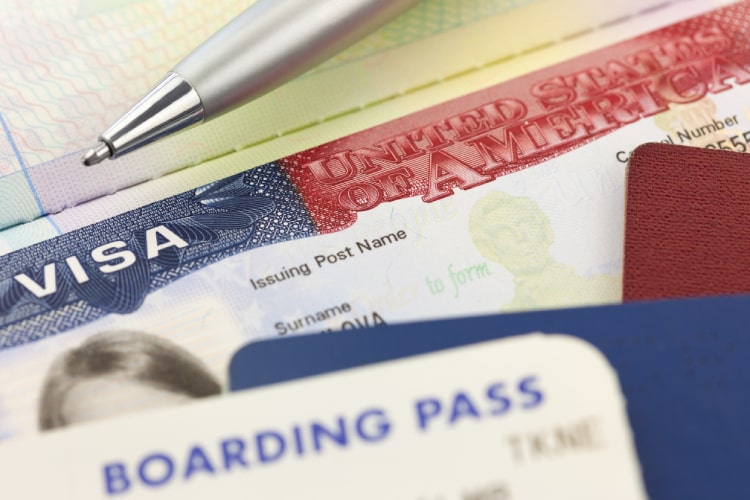
Discover if you qualify for the US Automatic Visa Revalidation (AVR) process, a unique opportunity for individuals with expired nonimmigrant visas to reenter the US without undergoing visa renewal at an embassy or consulate. This article breaks down the qualification and eligibility criteria, ensuring you understand the prerequisites for seamless travel.